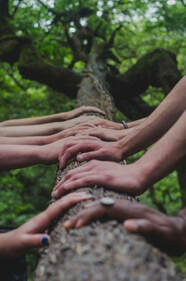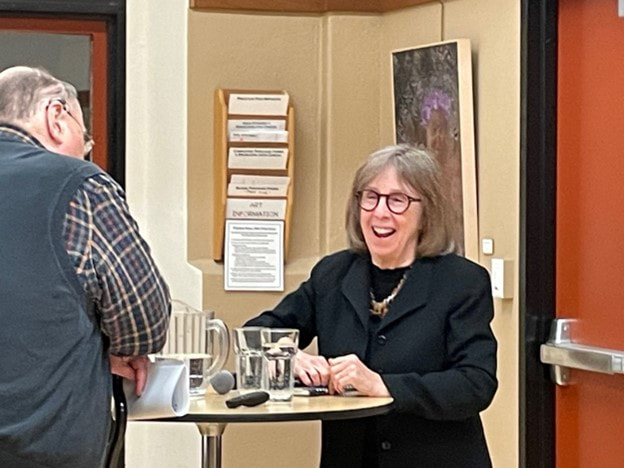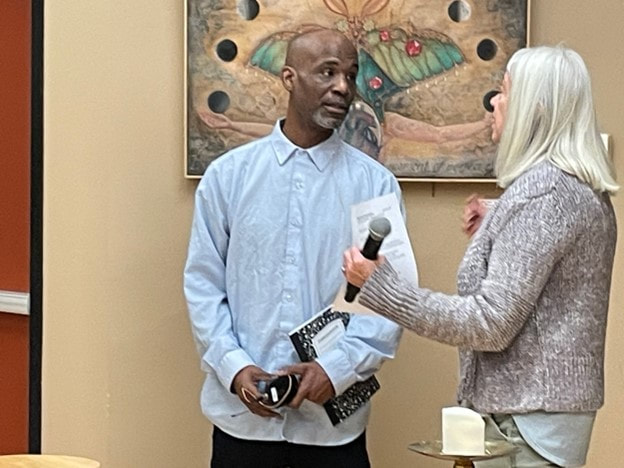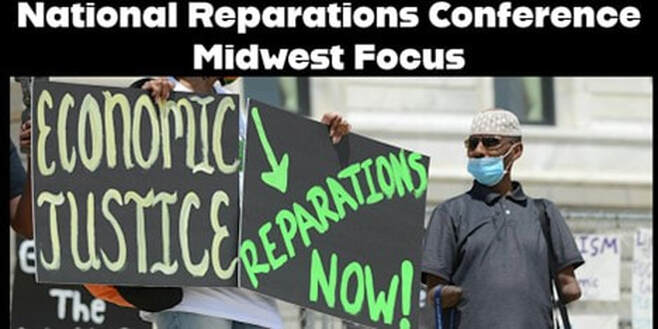|
Suki Sun, Beloved Community Communications Team  Who would have thought Transforming Conflict, the workshop led by Rev. Dr. Terasa Cooley on February 3, would be woven with so many different shapes of tenderness, lightness, and playfulness? The first big laugh burst in Parish Hall when one of the bullet points showed “No Return to ‘Normal.’” How many times have conflicts that I experienced arisen from my refusal to embrace the transforming potential of changes? In my way was the false brief that these changes served no chance as evolutional pivot points but only broken promises to “my good old days.” Especially in a group setting, even though I never say these words aloud — “We just don’t do that” or “We always do things like that” — I can no longer deny that these thoughts are exactly my go-to reactions when facing conflicts. Then, my tendency has been to cut the conflict short and walk away. Before this workshop, I always thought my aversion to conflict was deep-rooted, and I had plenty of reasons to justify it: I grew up in China where all kinds of “saving face” conversation strategies lubricate the harmony of the society; I am a Libra, a natural peace seeker, and a people pleaser. Dr. Terasa inspired a willingness in me to cultivate the required taste for the deep flavor of conflict. Perhaps the first step to uproot my bias against conflict is to normalize the conflict. When I learn to look deeper into the uniqueness of each person with what Dr. Terasa called “holy curiosity,” I can transform my uneasiness into openness while listening to different voices and learning something. There are no difficult people, only different people. There are no difficult conversations, only different conversations. Put another way, to normalize conflict is to normalize difference. And difference here is not something that needs to be adjusted, aligned, or fixed, but to be encouraged and celebrated. One of my favorite quotes from Dr. Terasa at the workshop was, “You are part of us not because you act like us.” Her famous saying, “I see you. I care about you. I want to learn from you,” was like a mantra, repeated several times during the workshop, and it resonated with me every time. Conflicts that I used to perceive as “difficult” are an invitation for me to practice deep listening and to build deep connections with others, even if they have different interests; sharing the interests of others is a profound learning experience. The interests of other people may interest me, too! In my own culture, the first character in Chinese for conflict 冲 also means “to splash amid the waterfall.” What a lively and poetic scene of natural force! Could conflicts be as normal as the ever-flowing water in nature? When meeting uneven territory, water creates more wonder than stagnation, like a waterfall with amazing dancing and singing. In this sense, conflicts especially latent conflicts, are vital signs that manifest energy and the dynamic of relationships and organizations. They are life-giving opportunities for me to adapt, change, and transform into something beyond my own small self. After all, what is a 100% conflict-free zone? A dead zone. Another memorable laugh happened in the workshop when Dr. Terasa jokingly described some people in conflicts as “highly amygdalated.” She explained that part of the amygdala in our brain elicits a simple black-and-white reaction: danger vs. no danger. Because it bypasses complex cogitations, the by-product is a false sense of urgency. In a societal conflict, not only do I see danger as losing and safety as winning, but also, I want to win now. Unfortunately, the amygdala-hijacked version of us always has the loudest voice speaking in ways that silence others, or stays silent when I need to speak up. That’s why building my amygdala awareness is so important. Once I notice my amygdala is activated, I can consciously bring back my authentic self by applying some soothing strategies like breathing out longer than breathing in, in a steady rhythm, and sending calming messages to my brain that I am in a much safer place than what my nervous system tells me. The whole workshop was packed with many strategies and tools for transforming conflicts, but I found that approaching with a beginner’s mind offered a fresh view of conflicts that allowed me to lean in and cherish the learning opportunity in each conflict. F. Scott Fitzgerald once said, “The test of a first-rate intelligence is the ability to hold two opposed ideas in the mind at the same time, and still retain the ability to function.” The biggest takeaway from the Transforming Conflict workshop was to “make complexity a friend.”
0 Comments
Shelley Butler, Beloved Community Communications Team No Question That Reparations Are Owed After coming into the Parish Hall for Wellspring Wednesday on January 31, 2024, and saying hey to a few people, I took a spot at the front in one of the only seats left for the panel discussion, “The Process of Politics and Reparations in Saint Paul,” sponsored by the Unity Racial and Restorative Justice Team. Unity member Russel Balenger spoke about being a descendent of enslaved people, and about growing up in Rondo before being displaced. In a brief film, we heard Bridgett Floyd, sister of George Floyd, speak about the enslaved ancestors who managed to acquire several hundred acres of farmland in the South after emancipation only to have it stolen from them. Our country and our state of Minnesota were built on stolen land and free labor. Reparations are not an abstract idea relating to people over 100 years ago. The action is personal to Russel and Bridgett and every descendent of an enslaved family member. And it is about the continuing legacy of slavery: trauma, lost generational wealth, health care issues, housing discrimination, disproportional imprisonment, the destruction of the Rondo neighborhood, and more. We learned that Minnesota has the third-largest racial wealth gap in the country. It should be personal to all of us. Jane Prince has worked on reparations for years and is now fresh off the City Council and a Unity Church member. She said, “Reparations [are] a federal debt.” The work in St. Paul is a start, as are the 116 other proposals to do with reparations that have passed around the country. Reparative Work by the St. Paul City Council To bring us up to date, Trahern Crews, a Black Lives Matter Minnesota leader and one of the conveners of St Paul’s Reparations Advisory Committee, walked us through the years of study and work completed by himself, Balenger, Prince, and many others that led to successful reparations work in St. Paul. Highlights include:
Independent of the City Council, Mayor Melvin Carter established the Rondo Inheritance Fund to help displaced Rondo families purchase housing. And while information on the Inheritance Fund is on the city website under “City Council Reparations Efforts,” it is not related to the commission. Due to a large number of applicants, the city is no longer taking applications for this fund. What You Can Do Right Now The history so far is important, but to hear direct-experience testimony is to witness the pain and hopefully, to become allies in the work of reparations. Thus, the call to immediate action. Here’s what you can do:
Questions for Further Thought
|
Topics
All
Beloved Community ResourcesUnity Justice Database
Team Dynamics House of Intersectionality Anti-Racism Resources in the Unity Libraries Collection Creative Writers of Color in Unity Libraries The History of Race Relations and Unity Church, 1850-2005 Archives
July 2024
Beloved Community Staff TeamThe Beloved Community Staff Team (BCST) strengthens and coordinates Unity’s antiracism and multicultural work, and provides opportunities for congregants and the church to grow into greater intercultural competency. We help the congregation ground itself in the understanding of antiracism and multiculturalism as a core part of faith formation. We support Unity’s efforts to expand our collective capacity to imagine and build the Beloved Community. Here, we share the stories of this journey — the struggles, the questions, and the collaborations — both at Unity and in the wider world.
The current members of the Beloved Community Staff Team include Rev. Kathleen Rolenz, Rev. KP Hong, Rev. Lara Cowtan, Drew Danielson, Laura Park, Lia Rivamonte and Angela Wilcox. |


